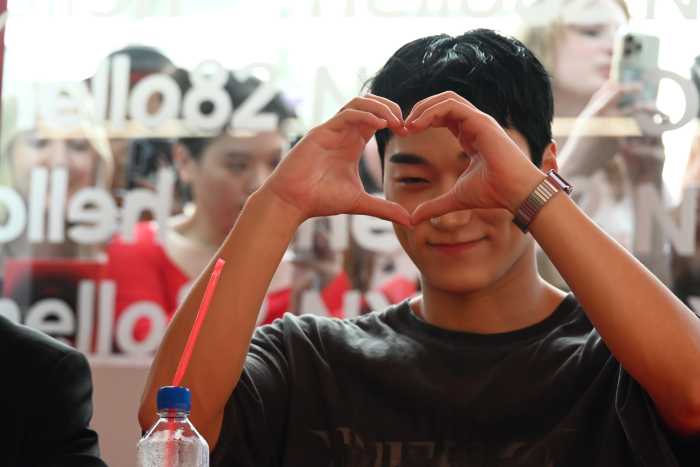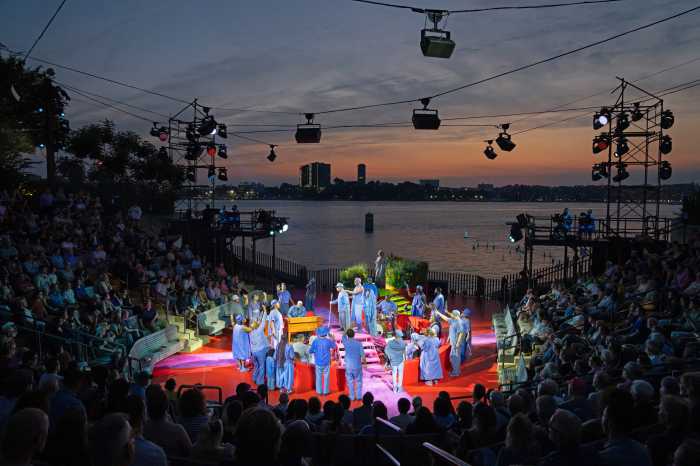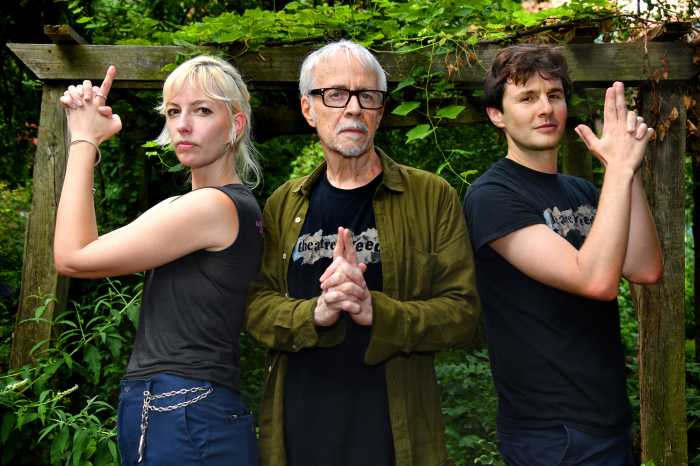
Sandra Newman’s new novel, “The Heavens,” takes place in a New York City that could almost be our own, that might have been our own, were it not for one fateful step at some point in the past.
The whimsical and audacious Kate, a Hungarian-Turkish-Persian woman who sleeps on a friend’s rooftop, believes that she’s the one to recognize that misstep — and correct it. She just might be able to do it, because when she falls asleep, she awakens in Elizabethan times. Or at least she believes she does.
Influenced by historical fiction, science fiction and fantasy, “The Heavens,” out Tuesday, is a compelling and complex critique of our current times — but to say much more about it would risk ruining its many twists and turns.
The NYC-based author spoke with amNewYork about timelines, time travel and where our world is headed.
How do you keep track of everything in such a complicated book?
I’m an obsessive outliner actually. It’s funny, I have four different files called “‘The Heavens’ outline” — number one, number two, number three, number four. And what happens is I start with one outline and it begins to get out of control, so I start a new file to make a simple outline of the first outline. And then it just kind of snowballs from there until I have 100 pages of outline.
Where did the idea of time traveling through dreams come from?
The unvarnished truth is that I wanted to time travel in the book and I did not want to invent time travel. I didn’t want there to be a time machine or a time machine device, and the dreams started to work. And it worked with the character being a very impractical person, a sort of utopian dreamer. The things just all went together and then it began to infect the style . . . whether [the action] is in the dream or not in the dream, the whole book is a kind of dreamscape.
The novel critiques several real world issues, from climate change to the current political environment in the U.S. to many others. Was there a specific concern that impelled you to write this book?
There is a very common idea in time-travel narrative of going back in time to kill baby Hitler. But if you think about it, now is also a time we feel that history is at a crossroads. Could we not do the decisive thing now? So that’s sort of the political idea of the book. We feel as if we could just change history if only we could do [X or Y]. . . . For me the book started with the very simple idea of somebody going back in time and having a love affair with [spoiler] as a cool idea. But then the actual book comes from thinking about that idea and turning it from a cool, silly idea into a genuinely interesting and serious idea.
Do you think we can change our world or are we stuck with the one we have?
I’m absolutely not a fatalist, and I believe that what I was trying to do with this book was to give the reader a feeling for how close we are not only to a dystopian reality but also to a utopian reality. As you go through the book you get this feeling for how close we are to a better reality, especially living in New York, because there are a lot of different versions of New York we go through in the book.




































